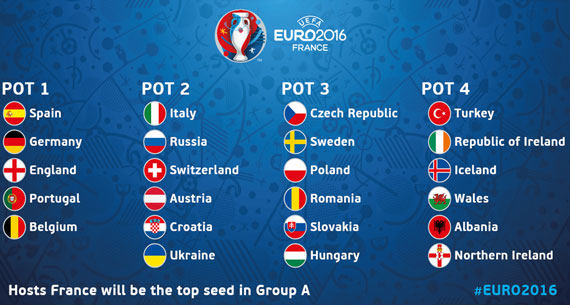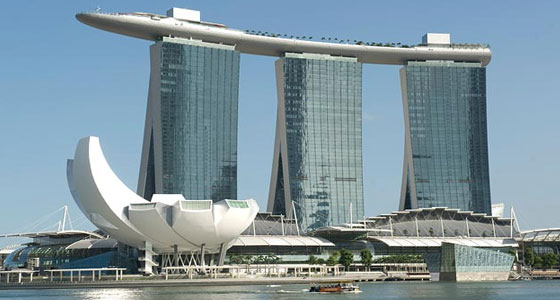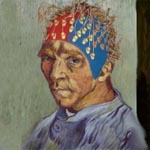The Week in Pictures: November 17 – November 23, 2015

There were some huge news stories that broke last week so lets quickly review some of the most important to his the headlines.
A terrorist attack on the luxury Radisson Blu Hotel in Bamako, capital of Mali, left at least 19 dead last week. The dead included an American, an Israeli, three Chinese, six Russians, two Belgians and witnesses report numerous members of the hotel’s security staff were killed when the dozen or so attackers struck using a car featuring diplomatic plates. Both Al-Qaeda in the Islamic Maghreb and al-Murabitoun claimed responsibility for the attack although authorities couldn’t confirm either claim.
Last week Anastasia Lin, the winner of Miss World Canada claimed she had been shut out of the finals of the Miss World contest by the hosts China for her outspoken stance on their record of human rights abuses and her defense of the Falun Gong who are deemed an illegal cult by the Chinese communist party. Without an official letter of invitation, which other finalists received in late October, she is unable to apply for the necessary visa. Miss World Canada said it would not provide a replacement.
A massive manhunt continued across Belgium last week as authorities sought the armed-and-dangerous Salah Abdeslam amidst intelligence reports that indicated an imminent threat of attack. Brussels, the capital, remained under lockdown for several days with residents told to avoid crowds, the city’s metro closed down and soldiers patrolling the streets. Many European capitals remain on a high state of alert following the attacks perpetrated in Paris on Friday the 13th that left 130 dead and hundreds injured.
In sport Chelsea took an hour to get the only goal scored in their Premier League fixture with Norwich giving them a much needed win in a week that saw Jose Mourinho claim that reaching the top of the table was “Mission Impossible” and that “Maybe Tom Cruise can do it, but it’s complicated.” Will the diminutive Hollywood star give up his career to manage the London side? You’ll have to read our daily news pages to find out, but in the meantime he’s a look at some of the big stories we covered last week.
1. Holly Holm landed a big punch on sportsbooks with her UFC 193 KO win against Rousey.

2. Royal Panda Casino paid out some big cash winnings for online casino players last weekend.

3. EURO 2016: The pots for the final tournament draw were determined after the playoffs had been concluded.

4. Numbers after week 11 of the 2015 NFL season suggested that this year could be the fourth straight record-breaking season for Vegas sportsbooks.

5. PokerStars produced its seventh millionaire through the random prize Million Dollar Sit and Go tournaments.

Meanwhile an audience member on the long running BBC television show Question Time asked why the media continued to associate mainstream Islam with the militant terrorists in ISIS by calling them Islamic State (given they’re neither Islamic nor a state) saying “If I call myself a zebra do you them refer to me as a zebra?” Many experts encourage the use of the term Daesh instead a pronunciation of the acronym that also sounds uncannily like “a bigot who imposes his views on others” instead.


There were some huge news stories that broke last week so lets quickly review some of the most important to his the headlines.
A terrorist attack on the luxury Radisson Blu Hotel in Bamako, capital of Mali, left at least 19 dead last week. The dead included an American, an Israeli, three Chinese, six Russians, two Belgians and witnesses report numerous members of the hotel’s security staff were killed when the dozen or so attackers struck using a car featuring diplomatic plates. Both Al-Qaeda in the Islamic Maghreb and al-Murabitoun claimed responsibility for the attack although authorities couldn’t confirm either claim.
Last week Anastasia Lin, the winner of Miss World Canada claimed she had been shut out of the finals of the Miss World contest by the hosts China for her outspoken stance on their record of human rights abuses and her defense of the Falun Gong who are deemed an illegal cult by the Chinese communist party. Without an official letter of invitation, which other finalists received in late October, she is unable to apply for the necessary visa. Miss World Canada said it would not provide a replacement.
A massive manhunt continued across Belgium last week as authorities sought the armed-and-dangerous Salah Abdeslam amidst intelligence reports that indicated an imminent threat of attack. Brussels, the capital, remained under lockdown for several days with residents told to avoid crowds, the city’s metro closed down and soldiers patrolling the streets. Many European capitals remain on a high state of alert following the attacks perpetrated in Paris on Friday the 13th that left 130 dead and hundreds injured.
In sport Chelsea took an hour to get the only goal scored in their Premier League fixture with Norwich giving them a much needed win in a week that saw Jose Mourinho claim that reaching the top of the table was “Mission Impossible” and that “Maybe Tom Cruise can do it, but it’s complicated.” Will the diminutive Hollywood star give up his career to manage the London side? You’ll have to read our daily news pages to find out, but in the meantime he’s a look at some of the big stories we covered last week.
1. Holly Holm landed a big punch on sportsbooks with her UFC 193 KO win against Rousey.

2. Royal Panda Casino paid out some big cash winnings for online casino players last weekend.

3. EURO 2016: The pots for the final tournament draw were determined after the playoffs had been concluded.

4. Numbers after week 11 of the 2015 NFL season suggested that this year could be the fourth straight record-breaking season for Vegas sportsbooks.

5. PokerStars produced its seventh millionaire through the random prize Million Dollar Sit and Go tournaments.

Meanwhile an audience member on the long running BBC television show Question Time asked why the media continued to associate mainstream Islam with the militant terrorists in ISIS by calling them Islamic State (given they’re neither Islamic nor a state) saying “If I call myself a zebra do you them refer to me as a zebra?” Many experts encourage the use of the term Daesh instead a pronunciation of the acronym that also sounds uncannily like “a bigot who imposes his views on others” instead.

The week in pictures: November 4th – November 10th, 2014

In Berlin Germans celebrated the end of the cold war and the collapse of the Berlin Wall that for so long divided their city. Built by the communist authorities in 1961 to stop people fleeing to the west it collapsed in 1989 in triumphant scenes flashed around the world. To celebrate events were held across the city with 8,000 white balloons released along the length of the wall, only a few miles of which remains, to remember the numerous people who died trying to escape the east during the cold war. The Brandenburg Gate saw the biggest party with Peter Gabriel playing David Bowie’s “Heroes” to a massive crowd.
Massive crowds were not in evidence during the US midterm elections on Tuesday where a scant 36.5% of the voting public bothered to actually vote. This coupled with the Republican stoked unpopularity of President Obama saw the Democratic Party take a decisive beating at the ballot box. As the results rolled in it became apparent there was a lot of work to do before 2016 if they wish to retain the White House. Republicans celebrated their victory and new control over the Senate but insisted they would be working with the President in the final two years of his presidency, a sentiment echoed by Obama. And if you believe that…
Talking of unbelievable the new head of GCHQ, the British equivalent of the NSA, Robert Hannigan has called on tech giants to cooperate more closely with the intelligence services in the fight against extremists and terrorism. Apparently our all having social media sites and the ability to encrypt our communications is making his job a little bit too difficult, which is ironic since most of us only started using encryption after we found out Mr. Hannigan and his friends were listening in on everything we said online. In an almost pleading article for the Financial Times he called for a “mature debate” on privacy, security and civil liberties. Yeah. Good luck with that, Bob.
In sports the Formula 1 drivers championship was still neck and neck as Nico Rosberg and Lewis Hamilton went into the Brazilian Grand Prix. In an action packed race that saw Hamilton spin off at one point, the two Mercedes drivers romped home in first and second place with the German Rosberg winning cutting Hamilton’s championship lead to just 17 points with 50 available in the final race of the season in Abu Dhabi. Who’ll win that and take the season? Find out in our daily news pages but before you do that check out the stories that hit our headlines last week.
1. Apparently, the Chukchansi Gold Resort and Casino is so profitable that two rival groups of the tribe who owns it are fighting over it with guns and firearms, just like in the Wild West.

2. Macau is in big trouble. With VIP customers avoiding the gambling hub due to China’s crackdown on corruption, the city’s casinos are posting huge drops in profit.

3. After pumping millions into their pro-casino campaign and dangling thousands of jobs in front of Massachusetts voters, Wynn, MGM and Penn National finally got what they wanted: the majority vote allowing them to move ahead with projects in the state.

4. As if making online operators pay extra to gain access to British players wasn’t enough, the UK Gambling Commission has also put restrictions on sports sponsorships.

5. Marriage is hard and David and Sam Mackie know it only too well. In two and a half years of marriage, they didn’t even get a chance to go on a honeymoon! Well luck was on their side last week, when they won a trip to Australia and GBP1 million.

6. After Macau, it is now Singapore’s turn to bleed because of China’s crackdown on corruption, which has chased away VIP customers. While gambling news talk aboutpainful losses in casino revenues, no one is bothering to figure out what these high-rollers are actually hiding from.

7. Reports suggested that British driver Lewis Hamilton could potentially suffer a similar fate at the Interlagos circuit as in previous years.

Meanwhile Swedish scientists have shown human stem cells can be used to treat the effects of Parkinson’s Disease with a study displaying an alleviation or reversal of the brain damaged caused. Hailed as a break-through this test on rats may lead to clinical trials on humans by 2017, and last week the drummer from AC/DC was charged with attempting to arrange a murder amongst other things, and whilst those charges were dropped he still faces up to seven years for making threats to kill, a charge his lawyer says will be contested, will he get off? Find out in our daily news pages.



In Berlin Germans celebrated the end of the cold war and the collapse of the Berlin Wall that for so long divided their city. Built by the communist authorities in 1961 to stop people fleeing to the west it collapsed in 1989 in triumphant scenes flashed around the world. To celebrate events were held across the city with 8,000 white balloons released along the length of the wall, only a few miles of which remains, to remember the numerous people who died trying to escape the east during the cold war. The Brandenburg Gate saw the biggest party with Peter Gabriel playing David Bowie’s “Heroes” to a massive crowd.
Massive crowds were not in evidence during the US midterm elections on Tuesday where a scant 36.5% of the voting public bothered to actually vote. This coupled with the Republican stoked unpopularity of President Obama saw the Democratic Party take a decisive beating at the ballot box. As the results rolled in it became apparent there was a lot of work to do before 2016 if they wish to retain the White House. Republicans celebrated their victory and new control over the Senate but insisted they would be working with the President in the final two years of his presidency, a sentiment echoed by Obama. And if you believe that…
Talking of unbelievable the new head of GCHQ, the British equivalent of the NSA, Robert Hannigan has called on tech giants to cooperate more closely with the intelligence services in the fight against extremists and terrorism. Apparently our all having social media sites and the ability to encrypt our communications is making his job a little bit too difficult, which is ironic since most of us only started using encryption after we found out Mr. Hannigan and his friends were listening in on everything we said online. In an almost pleading article for the Financial Times he called for a “mature debate” on privacy, security and civil liberties. Yeah. Good luck with that, Bob.
In sports the Formula 1 drivers championship was still neck and neck as Nico Rosberg and Lewis Hamilton went into the Brazilian Grand Prix. In an action packed race that saw Hamilton spin off at one point, the two Mercedes drivers romped home in first and second place with the German Rosberg winning cutting Hamilton’s championship lead to just 17 points with 50 available in the final race of the season in Abu Dhabi. Who’ll win that and take the season? Find out in our daily news pages but before you do that check out the stories that hit our headlines last week.
1. Apparently, the Chukchansi Gold Resort and Casino is so profitable that two rival groups of the tribe who owns it are fighting over it with guns and firearms, just like in the Wild West.

2. Macau is in big trouble. With VIP customers avoiding the gambling hub due to China’s crackdown on corruption, the city’s casinos are posting huge drops in profit.

3. After pumping millions into their pro-casino campaign and dangling thousands of jobs in front of Massachusetts voters, Wynn, MGM and Penn National finally got what they wanted: the majority vote allowing them to move ahead with projects in the state.

4. As if making online operators pay extra to gain access to British players wasn’t enough, the UK Gambling Commission has also put restrictions on sports sponsorships.

5. Marriage is hard and David and Sam Mackie know it only too well. In two and a half years of marriage, they didn’t even get a chance to go on a honeymoon! Well luck was on their side last week, when they won a trip to Australia and GBP1 million.

6. After Macau, it is now Singapore’s turn to bleed because of China’s crackdown on corruption, which has chased away VIP customers. While gambling news talk aboutpainful losses in casino revenues, no one is bothering to figure out what these high-rollers are actually hiding from.

7. Reports suggested that British driver Lewis Hamilton could potentially suffer a similar fate at the Interlagos circuit as in previous years.

Meanwhile Swedish scientists have shown human stem cells can be used to treat the effects of Parkinson’s Disease with a study displaying an alleviation or reversal of the brain damaged caused. Hailed as a break-through this test on rats may lead to clinical trials on humans by 2017, and last week the drummer from AC/DC was charged with attempting to arrange a murder amongst other things, and whilst those charges were dropped he still faces up to seven years for making threats to kill, a charge his lawyer says will be contested, will he get off? Find out in our daily news pages.


Woman wins $43 million jackpot, casino refuses to pay

Louise Chavez of Denver, Colorado, was playing slots at the Fortune Valley Casino in Central City, Colorado on Friday night. She got excited when the machine she was on started flashing, displaying a message that she had won almost $43 million. The casino says the machine was broken, and gave Chavez some free meals and a hotel room instead.
BBC: $43m slot machine win a ‘mistake’ says Colorado casino
An American woman named Louise Chavez thought she had won $43m on a slot machine, but was later been told that a mistake was made.
According to the Fortune Valley Casino in Central City, Colorado, the slot machine had “malfunctioned.”
It seems Chavez will never see a penny of jackpot.
Chavez earns about $12,000 a year, so when the lights and bells went off, she was very excited.
“All of a sudden I saw the light come on on top of the machine. I’m like, ‘Oh, my God! Oh, my God!’ I’d never had this feeling before in my life, never.”
Gaming officials blame an unfortunate computer glitch.
Chavez said she was given a free room for the night, and some food for compensation, along with the $20 bet she put into the faulty slot machine.
“My emotions changed from excited, thrilled, to very upset.”
ABC News: Woman Wins $42 Million Jackpot? Not So Fast
When the lights started flashing on a slot machine at the Fortune Valley Casino, in Central City, Colorado, Louise Chavez thought she had won $43 million.
Instead, the casino claimed the machine malfunctioned, and all Chavez got out of it was some free meals and a room for the night.
“I put my money in there,” Chavez explained on Good Morning America. “Whatever I won, I should get… There are dreams and there are things I’d like to do — helping my family, helping my kids. That’s why I’m disappointed. I just don’t know.”
Fortune Valley communications director Joe Behm said, “We’ve been open for 15 years at Fortune Valley and this is the first time we’ve had something of this magnitude.”
“It’s unfortunate when it happens,” said Don Burmania, spokesperson for the Colorado Division of Gaming. “We don’t like it to happen, the casinos don’t like it to happen and in this case, the patron didn’t like it, either.”
The New York Times: Colorado: Instead of $43 Million, How About Waffles?
A US woman won $42.9 million off a penny bet in a slot machine at a Colorado casino, only to have her dreams doused when the casino claimed that the jackpot message was in fact an error. Colorado gambling authorities are now testing the machine in questions, while the rest state’s 39 casinos struggle to reassure gamblers.
Louise Chavez of Denver got the jackpot on Friday while playing at the Fortune Valley Casino in Central City. The listed its top prize as $251,000. She said that she was given a free breakfast as compensation, but that she is owed much more.

Louise Chavez of Denver, Colorado, was playing slots at the Fortune Valley Casino in Central City, Colorado on Friday night. She got excited when the machine she was on started flashing, displaying a message that she had won almost $43 million. The casino says the machine was broken, and gave Chavez some free meals and a hotel room instead.
BBC: $43m slot machine win a ‘mistake’ says Colorado casino
An American woman named Louise Chavez thought she had won $43m on a slot machine, but was later been told that a mistake was made.
According to the Fortune Valley Casino in Central City, Colorado, the slot machine had “malfunctioned.”
It seems Chavez will never see a penny of jackpot.
Chavez earns about $12,000 a year, so when the lights and bells went off, she was very excited.
“All of a sudden I saw the light come on on top of the machine. I’m like, ‘Oh, my God! Oh, my God!’ I’d never had this feeling before in my life, never.”
Gaming officials blame an unfortunate computer glitch.
Chavez said she was given a free room for the night, and some food for compensation, along with the $20 bet she put into the faulty slot machine.
“My emotions changed from excited, thrilled, to very upset.”
ABC News: Woman Wins $42 Million Jackpot? Not So Fast
When the lights started flashing on a slot machine at the Fortune Valley Casino, in Central City, Colorado, Louise Chavez thought she had won $43 million.
Instead, the casino claimed the machine malfunctioned, and all Chavez got out of it was some free meals and a room for the night.
“I put my money in there,” Chavez explained on Good Morning America. “Whatever I won, I should get… There are dreams and there are things I’d like to do — helping my family, helping my kids. That’s why I’m disappointed. I just don’t know.”
Fortune Valley communications director Joe Behm said, “We’ve been open for 15 years at Fortune Valley and this is the first time we’ve had something of this magnitude.”
“It’s unfortunate when it happens,” said Don Burmania, spokesperson for the Colorado Division of Gaming. “We don’t like it to happen, the casinos don’t like it to happen and in this case, the patron didn’t like it, either.”
The New York Times: Colorado: Instead of $43 Million, How About Waffles?
A US woman won $42.9 million off a penny bet in a slot machine at a Colorado casino, only to have her dreams doused when the casino claimed that the jackpot message was in fact an error. Colorado gambling authorities are now testing the machine in questions, while the rest state’s 39 casinos struggle to reassure gamblers.
Louise Chavez of Denver got the jackpot on Friday while playing at the Fortune Valley Casino in Central City. The listed its top prize as $251,000. She said that she was given a free breakfast as compensation, but that she is owed much more.
Brain Probe Studies Why Gamblers Take Risks

A recent study examined the behavior of two women who, because of a rare genetic disorder, had lesions on a small part of their brain called the amygdala. The study showed that these women were more likely to take big risks than patients with healthy brains. It may provide insight into why some people are less afraid to gamble than others.
BBC: Patients with amygdala injury ‘unafraid’ to gamble
Some scientists in California believe they have pinpointed the part of the human brain makes people afraid to lose money. A study published in the Proceedings of the National Academy of Sciences examined two patients who had damaged their amygdala, a special area deep within the brain.
The study showed that these patients were less worried about financial losses than the volunteers they were compared with whose amygdalae were intact. They use the term ‘loss aversion’ which describes the avoidance of choices which can lead to losses, even when those losses are clearly accompanied by gains which offset them.
The lead author, Dr Benedetto De Martino, explains things in terms of the game show Who Wants to Be a Millionaire, suggesting that many people would rather walk away with the prize they have than risk dropping to a lower level in order to try and win more.
During the study, participants were offered a series of tests to look at whether the chance of losing money had an effect on their willingness to take risks. The study found that healthy volunteers only decide to gamble if the gains were one and a half to two times the size of the potential losses.
Conversely, patients whose amygdalae were damaged were more reckless, playing even on poorer ratios between gains and losses.
John Aggleton, Professor of Psychology at Cardiff University, said: “Most people have been found to have a bias against losses, but this study shows very clearly that when the amygdala is damaged, this “loss aversion” disappears.”
The Independent: Genetic disorder turns risk-averse into gamblers
The brains of people who take big risks while gambling may differently than those of naturally cautious people, according to a new study that may have discovered a neurological basis for reckless behaviour.
The study found that people were more likely to engage in high-risk gambling when a specific area of their brain had been damaged due to a result of a rare genetic disorder. These individuals lacked the natural aversion to losing something of value that many are born with.
Tests on two women who had suffered damage this part of their brain, called the amygdala, revealed that they were less afraid to lose money in high-risk gambling situations compared to individuals with no such damage to their brain.
The amygdala is a small almond-shaped structure deep inside the brain. It is referred to as the “seat of fear” because of its central role in controlling this emotion. It is an ancient area of the brain that existed long before the outer “higher cortex” evolved.
“It may be that the amygdala controls a very general biological mechanism for inhibiting risky behaviour when outcomes are potentially negative, such as the monetary loss aversion which shapes our everyday financial decisions,” said Benedetto De Martino, a researcher at University College London.
Loss aversion behaviour is biologically important because it helps us consider the options involved in potentially life-threatening decisions. Today, it manifests itself in much different ways.
Reuters: Study shows why it is so scary to lose money
A recent study examined two women with brain lesions that made them unafraid to take big risks when gambling. It showed that the amygdala, the brain’s fear center, becomes active when people think about losing money.
The findings of the study were reported in the Proceedings of the National Academy of Sciences. The report suggests that humans may have evolved to be cautious about the possibility of losing food or other valued possessions.
Benedetto De Martinoa of the California Institute of Technology in Pasadena and University College of London were exploring why people will turn down big gambles, even when the gamble is likely to lead to an even bigger gain.
“Laboratory and field evidence suggests that people often avoid risks with losses even when they might earn a substantially larger gain, a behavioral preference termed ‘loss aversion’,” they wrote.
“We think this shows that the amygdala is critical for triggering a sense of caution toward making gambles in which you might lose,” Colin Camerera of University College London, who worked in the study, said in a statement.
The study may assist researchers in understanding why some people are more willing to take risks than others.

A recent study examined the behavior of two women who, because of a rare genetic disorder, had lesions on a small part of their brain called the amygdala. The study showed that these women were more likely to take big risks than patients with healthy brains. It may provide insight into why some people are less afraid to gamble than others.
BBC: Patients with amygdala injury ‘unafraid’ to gamble
Some scientists in California believe they have pinpointed the part of the human brain makes people afraid to lose money. A study published in the Proceedings of the National Academy of Sciences examined two patients who had damaged their amygdala, a special area deep within the brain.
The study showed that these patients were less worried about financial losses than the volunteers they were compared with whose amygdalae were intact. They use the term ‘loss aversion’ which describes the avoidance of choices which can lead to losses, even when those losses are clearly accompanied by gains which offset them.
The lead author, Dr Benedetto De Martino, explains things in terms of the game show Who Wants to Be a Millionaire, suggesting that many people would rather walk away with the prize they have than risk dropping to a lower level in order to try and win more.
During the study, participants were offered a series of tests to look at whether the chance of losing money had an effect on their willingness to take risks. The study found that healthy volunteers only decide to gamble if the gains were one and a half to two times the size of the potential losses.
Conversely, patients whose amygdalae were damaged were more reckless, playing even on poorer ratios between gains and losses.
John Aggleton, Professor of Psychology at Cardiff University, said: “Most people have been found to have a bias against losses, but this study shows very clearly that when the amygdala is damaged, this “loss aversion” disappears.”
The Independent: Genetic disorder turns risk-averse into gamblers
The brains of people who take big risks while gambling may differently than those of naturally cautious people, according to a new study that may have discovered a neurological basis for reckless behaviour.
The study found that people were more likely to engage in high-risk gambling when a specific area of their brain had been damaged due to a result of a rare genetic disorder. These individuals lacked the natural aversion to losing something of value that many are born with.
Tests on two women who had suffered damage this part of their brain, called the amygdala, revealed that they were less afraid to lose money in high-risk gambling situations compared to individuals with no such damage to their brain.
The amygdala is a small almond-shaped structure deep inside the brain. It is referred to as the “seat of fear” because of its central role in controlling this emotion. It is an ancient area of the brain that existed long before the outer “higher cortex” evolved.
“It may be that the amygdala controls a very general biological mechanism for inhibiting risky behaviour when outcomes are potentially negative, such as the monetary loss aversion which shapes our everyday financial decisions,” said Benedetto De Martino, a researcher at University College London.
Loss aversion behaviour is biologically important because it helps us consider the options involved in potentially life-threatening decisions. Today, it manifests itself in much different ways.
Reuters: Study shows why it is so scary to lose money
A recent study examined two women with brain lesions that made them unafraid to take big risks when gambling. It showed that the amygdala, the brain’s fear center, becomes active when people think about losing money.
The findings of the study were reported in the Proceedings of the National Academy of Sciences. The report suggests that humans may have evolved to be cautious about the possibility of losing food or other valued possessions.
Benedetto De Martinoa of the California Institute of Technology in Pasadena and University College of London were exploring why people will turn down big gambles, even when the gamble is likely to lead to an even bigger gain.
“Laboratory and field evidence suggests that people often avoid risks with losses even when they might earn a substantially larger gain, a behavioral preference termed ‘loss aversion’,” they wrote.
“We think this shows that the amygdala is critical for triggering a sense of caution toward making gambles in which you might lose,” Colin Camerera of University College London, who worked in the study, said in a statement.
The study may assist researchers in understanding why some people are more willing to take risks than others.















